When it comes to North Korea foreign relations, who does the Democratic Peoples Republic of Korea have diplomatic relations with, and what are the foreign relations of North Korea? The foreign relations of North Korea are certainly a complex and byzantine affair, but despite the country’s reputation for being reclusive and insular, North Korea enjoys diplomatic relations with a whole host of countries – including a few that might surprise you!
We take a look at the past, present and future of the foreign relations of North Korea.
Table of Contents
Foreign Relations of North Korea – A brief history
COMINTERN, China, and the Sino-Soviet Split
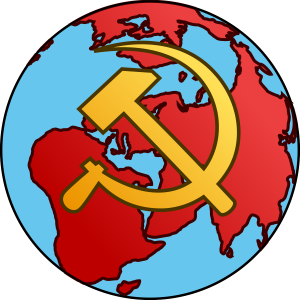
North Korea’s early foreign policy was largely shaped by its relationship with the USSR, and thus the broader COMECON movement.
Ironically, given their close relationship (both geographically and politically) to both Russia and China, North Korea was pretty much the only Socialist Bloc country that were not required to take sides in the Sino-Soviet Split. Even today, China and Russia remain the DPRK’s closest allies. In this sense the DPRK were very clever in how they balanced their foreign relations with both countries.
North Korea Foreign Relations – Was the DPRK a member of Comecon?
Despite sounding like a marvel convention Comecon, which stood for the Council for Mutual Economic Assistance (Russian: Сове́т Экономи́ческой Взаимопо́мощи). Officially it was an organisation of socialist states that worked together part of a common market.
While led by the Soviet Union it sought a way for communist and socialist states within the bloc to be able to trade together, often through a barter system in order to enhance both trade and socialism. All Eastern Bloc states were part of it, aside from Yugoslavia and Albania.
Ironically it was to a large extent a communist version of the European Union, an organization many on the right accuse of being all too Commie.
It was though not just European states who joined, with Cuba, Mongolia and Vietnam being full members, while countries as diverse as Mexico and Finland had observer status. North Korea was only ever an observer in Comecon, which led North Korea in some respects to actually be in competition with its socialist cousins. This was to such a degree it even led to accusations of Korean spies in the Soviet Union.
Following the fall of the USSR and the end of global communism and Comecon, North Korea needed to change tack. They thus started to reach out more and more to the capitalist world.
North Korea Diplomatic Relations in the modern era
This brings us to the present, in which the DPRK enjoys eclectic foreign trade and diplomatic relations to say the very least!
In the foreign relations of North Korea it has embassies in 47 countries, and holds some form of diplomatic relations with 164 countries in total. Some countries, such as Japan and the USA, do not officially recognise the DPRK as a country.
North Korea Allies
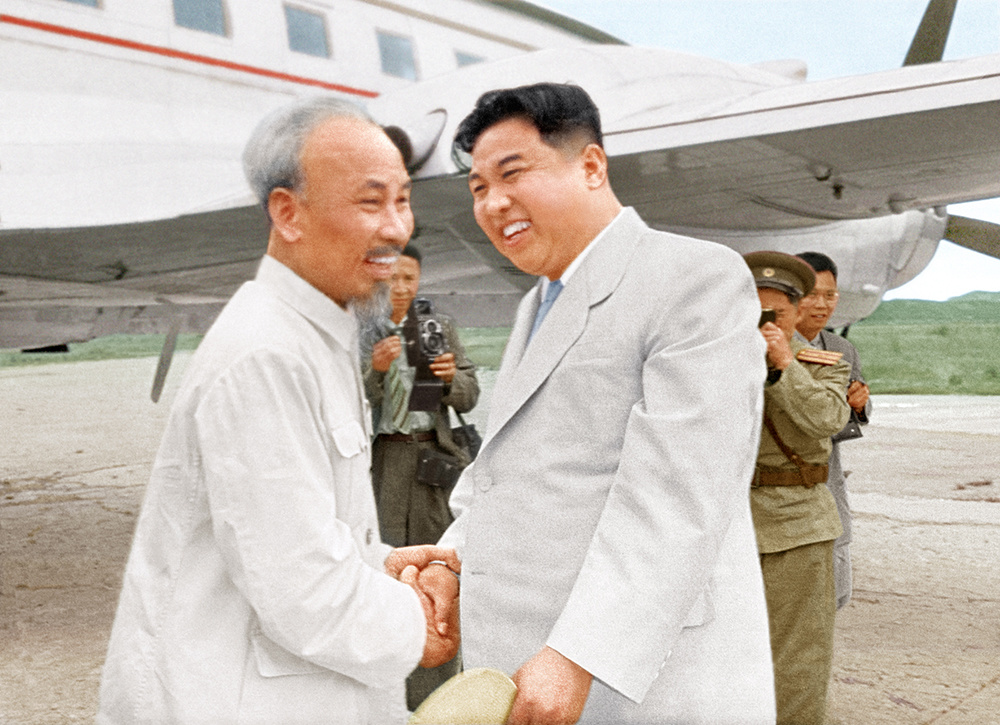
Whilst the cold war is now over (for some), and the concept of allies in the old sense no longer really exists, but are there North Korean allies? In the traditional sense, China would be considered the closest ally of the DPRK, both politically and economically.
The Russian Federation still remains on extremely close terms with North Korea, with it now being perhaps at its best since Soviet times.
From a party to party perspective, the fellow “communist” countries of Laos and Vietnam at least play lip service when it comes to being allied, but in reality, there is relatively little economic, or political collaboration between them.
Also in the South East Asia, one particularly strong bond was between the Kingdom of Cambodia and the DPRK. King Sihanouk was, famously, great friends with President Kim Il Sung. Sihanouk spent many of his years in exile in a villa he maintained in Pyongyang, and would regularly visit throughout his life. Also, Pol Pot once had a good relationship with Kim Il Sung. You can learn the history of the hidden past in our Dark Cambodia Tour.
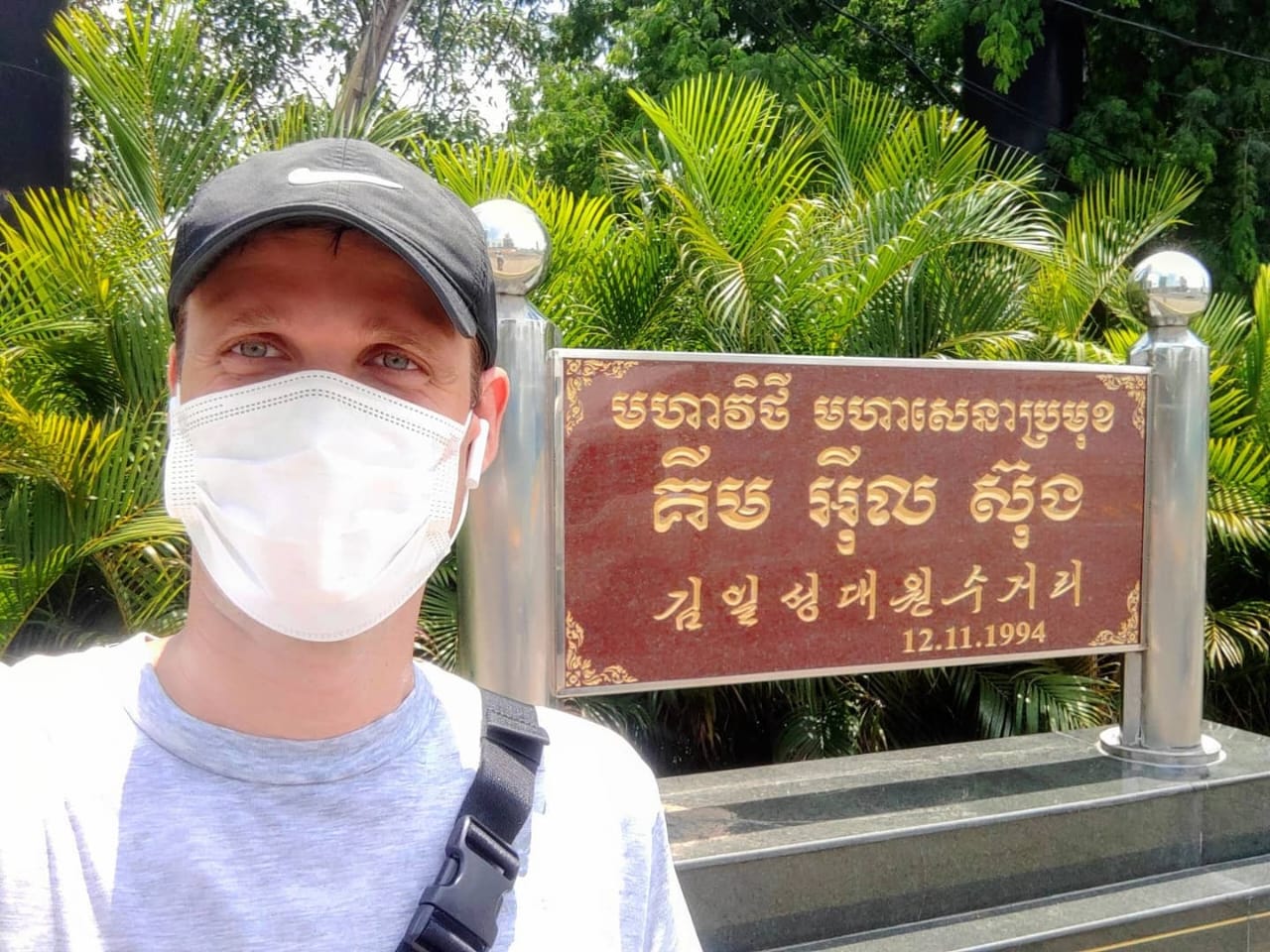
When it comes to non-national players, you could also include the Korean Friendship Association as an organization that is at the forefront of non-governmental North Korean allies. North Korea also took an active role in revolutionary movements throughout the Third World, supporting such diverse groups as the Black Panthers and the Workers’ Party of Ireland.
North Korea in Africa and beyond
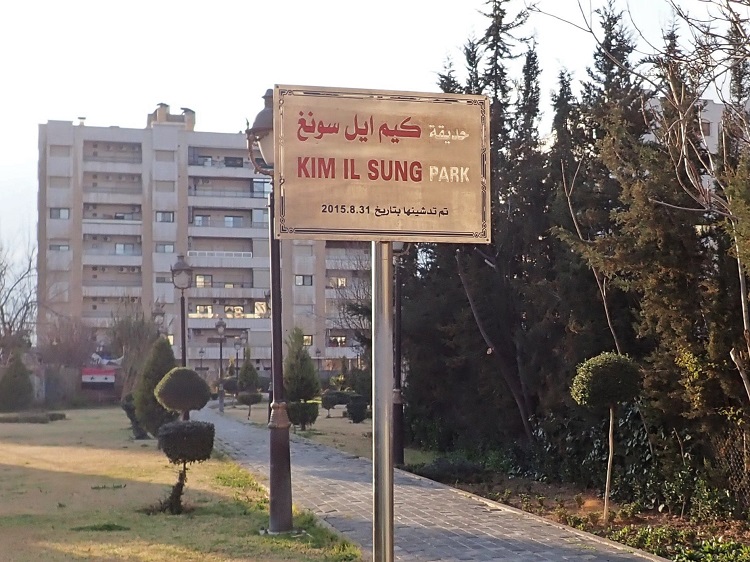

North Korea has maintained strong relations with many African nations. Algeria was the first non-communist country to recognize the DPRK.
Algeria is not the only African country to have enjoyed close ties to the DPRK. Nations such as Angola and Namibia still boast excellent relations with North Korea, and there are a number of monuments built by the North Koreans throughout Africa. There’s even a Kim Il Sung Street in the capital of Mozambique.
North Korea also provided training for guerrilla forces and armies in countries like Angola, Chad, Zimbabwe, etc. These forces played a crucial role in achieving national independence and opposing racist regimes. You can learn more about them when travel with YPT.
Nowadays, whilst there isn’t much in the way of a global socialist movement, it’s interesting to note that the last country to open an embassy in the DPRK was the Bolivarian Republic of Venezuela. Is the Socialist Bloc making a comeback?
Curious about which countries are socialist or want to learn more about the socialist bloc? Click the link for a comprehensive guide.
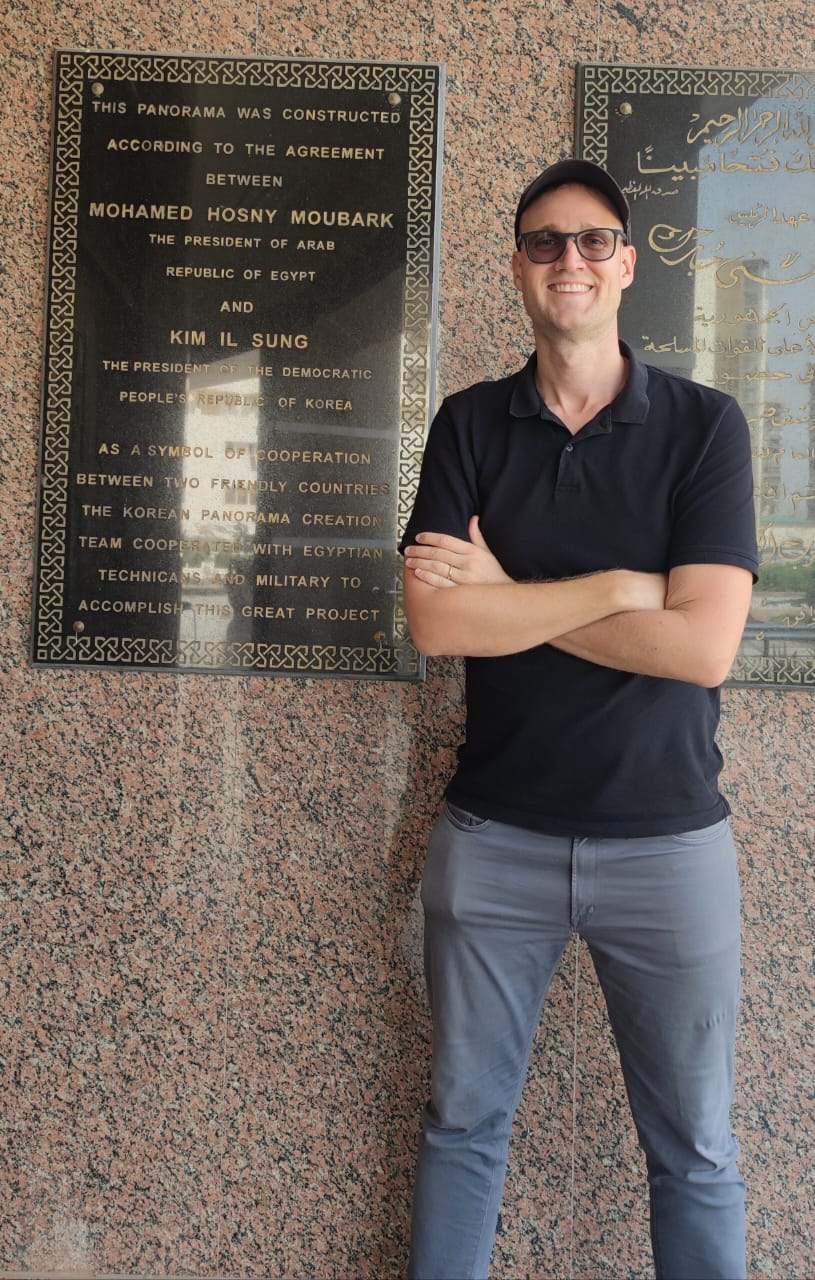
North Korean Diplomatic Relations and International Trade
From a trading point of view, things are, as previously mentioned, on the eclectic side. The aforementioned Chinese and Russians are the most prominent, but there are some other major players. Singapore and Malaysia have historically been heavily involved with trade to North Korea, particularly involving consumer goods.
Other countries such as Pakistan, Kuwait and Egypt – the latter of which is responsible for North Korea’s cellphone network – also enjoy comparatively good relations.
And then there is India, a country that North Korea actually do a lot of trade with, but again few people if at all know anything about. India is also home to many so-called “Juche Study Societies”.
North Korea’s relationship with its allies in 2025
China and Russia are seen as North Korea’s most important allies. Since the collapse of the Soviet Union, most Chinese have regarded China as North Korea’s primary ally and protector. However, this view is highly misguided. The relationship between China and North Korea entered a nearly decade-long period of deterioration around the time China established diplomatic relations with South Korea, only improving in the 2000s.
The COVID pandemic and the war in Ukraine have further altered the dynamics between China and North Korea. North Korea’s open support for Russia has put it in a somewhat awkward position with China, which presents itself to the world as a peace mediator. Moreover, North Korea seems to want to maintain its independence in front of China, which continues to exert influence.
If there were a ranking of allies, Russia would currently be North Korea’s top one. Starting in 2023, North Korea began addressing former Russian Defense Minister Sergei Shoigu and Russian President Vladimir Putin as “Comrade” instead of “His Excellency,” signalling a deeply close relationship between the two nations. Not to mention the tight political, military, and technological cooperation, as well as the signing of so-called “closest ally” agreements.
Another key aspect of assessing international relations is the consideration of civilian ties between countries. YPT can arrange tours to both China and Russia (and even Ukraine!), during which you can interact with locals and gain insight into their authentic views.
North Korea and Its Key Rivals: Diplomatic Relations with the USA, the South and beyond
North Korea – American Relations
In the past this was something that simply did not exist. Since the end of the Korean War, the two countries have remained in a state of hostility. High-level visits, such as former President Jimmy Carter’s meeting with Kim Il Sung in Pyongyang, did occur, these were primarily focused on addressing North Korea’s nuclear program or negotiating the release of detained citizens.
But things started to change since President Donald J. Trump.
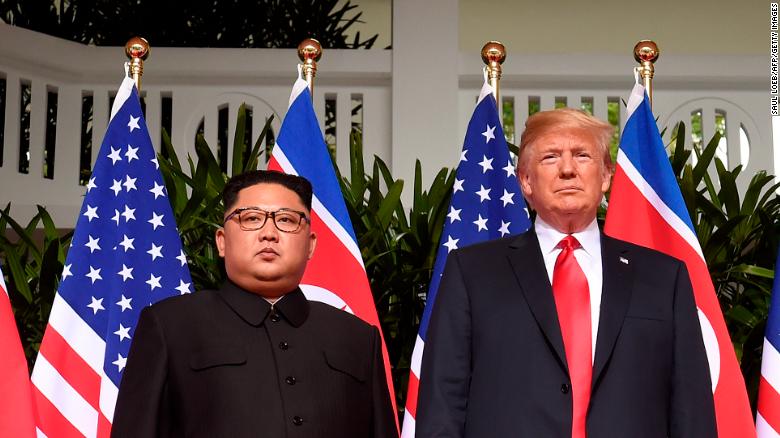
During the early Trump days it even looked like the DPRK and the USA would go to war, but how quickly things change. Overtures were made and in probably the biggest coup in the history of the foreign relations of North Korea Leader Kim Jong Un was to meet Trump.
North Korea – America Relations After Trump Era
Now whilst the two meetings between Kim Jung Un and Donald Trump did not overly achieve that much, they were still extremely historically important. To read about the 2019 Trump-Kim summit in Hanoi click here.
During Biden’s presidency, the two countries remained in a state of hostility, and the Korean Peninsula often faced its so-called most tense moments.
In 2025, Donald Trump returned to the With House as the 47th President of the United States. On the very next day after his victory, Rodong Sinmun reported the news of his inauguration. Back in 2021, Biden did not receive such attention.
Let’s look forward to what new opportunities 2025 might bring with the return of a U.S. president who has built a “special” relationship with Kim Jong Un.
North Korea and the American Civil Rights movement
What few people realize is that as well as being very much involved in the revolutionary anti-imperialist camp in the developing world, the DPRK also played a part in the American civil rights movement.
You can read about North Korean relations with the Black Panther Party here.
North Korea and Fraternal Socialist Organizations
When we talk about the foreign relations of North Korea we need to also look at them through socialist context of the country. This means that while the country obviously has numerous state-to-state relations, the country also has relations with non-state players, who are considered either fraternal socialist partners or ones that specifically follow Juche.
Political parties such as the Communist Party of Great Britain (Marxist-Leninist) are very much pro-DPRK, while there are also other groups such as the Juche Study Society that are even more specifically focused on relations with North Korea. Juche study groups indeed exist throughout the world.
Another group that would squarely fit into this category are Chongyron in Japan who represent the Japanese-Koreans that are pro-DPRK and to an extent hold North Korean citizenship. They also act as a kind of de-facto embassy for the DPRK in Japan as well. Therefore despite not being a state as such, they do represent one of the most important aspects of the foreign relations of North Korea.
The Inter-Korean relationship
When discussing inter-Korean relations, the situation can be complex and delicate. Before 2024, this issue was not categorized as a diplomatic matter. However, everything changed after December 2023.
The Relationship between North and South Korea before 2024
The Korean nation has been a single-ethnic nation since ancient times. Nearly 80 years ago, it was divided into North and South due to the Cold War. Despite their differences in ideology and social systems, both sides share a common view on national identity—they still regard themselves as one people and, constitutionally, as part of one ethnic group and one country.
Various efforts, both peaceful and violent, have been made to achieve reunification. Long story short, before the 1970s, the two Koreas were in complete hostility with no contact whatsoever. It was only in the 1970s, when relations between the Cold War blocs began to ease, that dialogue between the North and South became possible.
In the 1980s, President Kim Il Sung proposed the concept of the Confederal Republic of Koryo as a political framework for reunification. The Arch of Reunification in Pyongyang was built to commemorate this idea . However, the decade was also marked by violent incidents that hindered peace efforts, such as the assassination attempt on South Korean President Chun Doo-hwan in Myanmar and the 1987 KAL bombing. You can learn more about it in YPT’s Myanmar tours.
In the 1990s and early 2000s, South Korea implemented the Sunshine Policy, which led to improved inter-Korean relations. This period saw cooperative projects such as the Kaesong Industrial Complex and the Mount Kumgang Tourist Zone that allowed South Korean tourists to visit the North.
However, as global and domestic circumstances shifted, relations soured again, only to improve during President Moon Jae-in’s administration. Moon and Kim Jong Un held three summits, raising hopes for peace. But after the collapse of the Trump-Kim Hanoi Summit, relations deteriorated once more, worsening further under the presidency of Yoon Suk-yeol.
The Relationship between North and South Korea after 2024
When it comes to North Korean diplomatic relations, the Covid-era has certainly brought about some changes. Early in 2020 North Korea became the first country to close its borders, something people felt was mad at the time, until others duly followed suit.
This meant a complete closure of all borders, including that with its closest ally, namely the People’s Republic of China. During this period North Korea has periodically had rocket tests, but in essence the world has been too preoccupied to really care about them.
Perhaps most interestingly regarding North Korean foreign relations in recent years though has perhaps been the reawakening of North Korea’s friendship with Russia. A long-term fan of Putin, North Korea have often stated they feel he is “rebuilding the USSR”. They have not just been political supporters of the War in Ukraine, but have (allegedly) even supplied ammunition and forces.
And we have had the visit of Kim Jong Un to Russia() and frequent exchanges of high-level visits between senior officials from both North Korea and Russia. And if as many people see we are entering Cold War 2.0, then you do not need to guess which side the DPRK will fall on.
For a relatively long period, North Korea will continue to adopt a “strength-to-strength” strategy towards the United States. As for South Korea, it is seen merely as a puppet of the US by the North Korean authority, and active diplomatic efforts will likely be absent. However, North Korea’s borders are steadily opening up now, and you can find out firsthand about the DPRK’s international relations on our upcoming North Korea tours.





